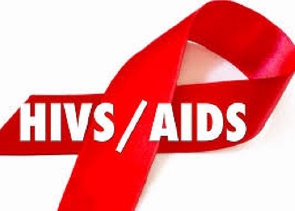Some persons living with HIV/AIDS (PLHIV) in the Tamale Metropolis have appealed for isolation of Antiretroviral Therapy (ART) centres at hospitals in this period of the COVID-19 pandemic to assure them of safety as they visit the hospitals to access their drugs.
They said ART centres at hospitals in the Metropolis were also open to other patients, which made them crowded all the time.
According to them, they are scared by the situation whenever they have to go for their drugs fearing COVID-19 spread fast in crowded areas.
Mr Langa Amadu, Northern Regional Secretary of the Ghana Network of Persons Living with HIV/AIDS (NAP Ghana), made the appeal when the GNA contacted him to learn about how the COVID-19 pandemic was impacting the lives of PLHIV in the metropolis.
In the Tamale Metropolis, antiretroviral drugs are delivered at wards and departments that are also open to other patients at the Tamale Teaching Hospital, Tamale Central Hospital, Tamale West Hospital and Builpela Health Centre.
This arrangement is to de-stigmatise PLHIV as they also go to the wards and departments just like other patients to access their drugs.
The PLHIV visit the hospitals once in a month to collect quantities of their drugs that to last for the month and some considered as stable patients were also given quantities that could last for more than a month.
According to the Ghana AIDS Commission, there are about 340,000 PLHIV in the country.
Mr Amadu said even though they preferred the current arrangement, the COVID-19 posed danger to their health due to their underlying health conditions.
This necessitates the need to isolate the ART centres during the COVID-19 pandemic such that they would not get infected as they mingled with other patients at the wards and departments in their attempt to access their drugs.
He said even though the current arrangement was preferable, PLHIV did not have personal protective equipment (PPE).
“We have lost our jobs. Our members sell at social gatherings and markets. For fear of getting infected at those places, they do not go to sell again. They cannot acquire hand sanitisers and face masks to protect themselves when going for the drugs.”
He said “We are scared but we do not have a choice. We have to go for the drugs because our survival depends on it. We need hand sanitizer, face masks and gloves because whenever you are going for the drugs, you will board vehicles, you will touch things, and you are likely to get infected with the disease.”
He said if isolation centres could not be created, then PLHIV, who were stable, should be given quantities of drugs that could last for a long time so that they would not be frequenting the hospitals, which would predispose them to the disease.
Mr Amadu spoke about the need for PLHIV to eat balanced diets to stay healthy in this period of COVID-19, saying “We have lost our jobs. We do not get nutritious meals to consume because we cannot afford them. Meanwhile, antiretroviral drugs make us hungry quickly. We need support.”
He said "previously, we received food rations, but it has been suspended. We are appealing that in this COVID-19 period, the food rations should be resumed to help boost our nutritional status so that we don't remain susceptible to the disease".
Madam Amina Ibrahim, Northern Regional Treasurer of NAP Ghana, said some PLHIV travelled from Walewale and other farther places to Tamale to access the drugs, adding that some of those PLHIV “Do not do any business and find it difficult to come for the drugs. So, sometimes, we parcel the drugs and send to them. In this COVID-19 period, they are suffering.”
Madam Amina appealed to the government to consider PLHIV as beneficiaries of the stimulus packages for small business operators in the country.
Dr Fred Nana Opoku, Director of Technical Services, Ghana AIDS Commission, acknowledged the challenges confronting PLHIV in the country, saying on the issue of isolating ART centres, the Commission would have to do a detailed analysis of the situation to inform what policy response to institute.
He expressed the need for hospitals delivering antiretroviral drugs to adhere to the social distancing protocol and urged patients and health staff to wear face masks to reduce the risk of spread of the COVID-19.
Regional News of Thursday, 2 July 2020
Source: gna.org.gh













